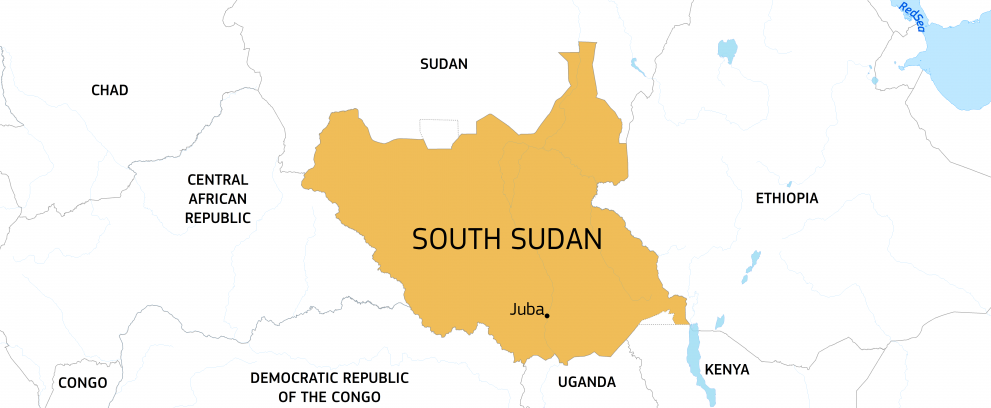Introduction
9 million people, 72% of South Sudan’s population, require humanitarian assistance in 2024.
During the lean period, 7.1 million people are experiencing severe food insecurity, with thousands living in famine-like conditions.
The Sudan conflict is generating an unprecedented wave of returns and arrivals (more than 865,000 as of 14 November 2024), in addition to the 280,000 refugees already in the country.
The EU remains committed to providing lifesaving, needs-based humanitarian assistance to the most vulnerable.
What are the needs?
Elections that were due to take place end of 2024 have been postponed for 2 years. In the meantime, the security situation does not improve, with increased inter-communal violence resulting in civilian casualties, new displacements, and a very insecure environment for aid workers.
Compounded with the consequences of climate change, macroeconomic shocks, and the consequences of the war in Sudan, South Sudan is sinking further into the worst humanitarian crisis since independence. Almost 4 million people, or over 1/3 of the population, are displaced, including 1.68 million internally displaced and nearly 2.3 million who are living as refugees in neighbouring countries.
South Sudan is hosting more than 485,000 refugees, including over 205,000 who have arrived since the beginning of the conflict in Sudan, and nearly 660,000 South Sudanese who have returned from Sudan since April 2023.

9 million people (54% of them children) require humanitarian assistance in 2024, including at least 7.1 million people estimated to have been severely food insecure at the peak of the lean season between July and September. The situation remains extremely tense considering skyrocketing inflation since early 2024, and major flooding in August/September. It is estimated that more than 1.6 million children will suffer from acute malnutrition during the same period.
Health indicators are among the worst in the world, with 6.3 million people having limited access to essential healthcare services. In this context, the cholera epidemic outbreak declared by the government on 28 October 2024 is particularly worrying. 244 cases and 4 deaths have been confirmed as of 14 November 2024, mainly in Renk, Malakal and Juba.
Humanitarian actors operate in a volatile and complex environment with huge logistical challenges. Repeated acts of violence against humanitarian workers and looting of humanitarian assets negatively affect access and delivery of humanitarian aid.

How are we helping?
In 2024, the EU allocated €108.6 million for humanitarian actions covering the response to displacements, violence, and the consequences of the Sudan crisis across South Sudan.
This includes €4 million to support static and mobile interventions for education in emergencies, focusing on primary education for newly displaced and out-of-school children.
Food insecurity and malnutrition are at a record high across the country. The EU is helping to reduce excess mortality and morbidity through emergency food assistance, nutrition interventions and cash assistance, including in hard-to-reach areas.

In addition, EU humanitarian funds help address critical humanitarian needs through emergency lifesaving activities, particularly when facing new shocks, using integrated multi-sector approaches mobile outreach teams and cash modality.
EU-funded humanitarian projects also provide humanitarian protection assistance to communities affected by violence in the country, new displacement, and/or climate change.
The EU also supports the humanitarian response to the consequences of the Sudan crisis in border areas (camp management, onward transportation) and in the most vulnerable communities affected by the large number of returns.
The EU continues to strongly support principled humanitarian assistance and advocate for the protection of humanitarian workers and their safe and sustained access to all parts of the country.
Last updated: 18/11/2024
Facts & figures
9 million people in need of humanitarian assistance in 2024 (OCHA)
7.1 million people are estimated to require emergency food aid between April and July 2024 (IPC Apr-Jul 2024)
Over 1.68 million people are internally displaced (IOM)
Around 2.3 million South Sudanese refugees in neighbouring countries (UNHCR)
EU humanitarian funding:
€108.6 million in 2024
Close to €1.2 billion since 2011
€1 million mobilised by the EU in response to the 2024 cholera outbreak

